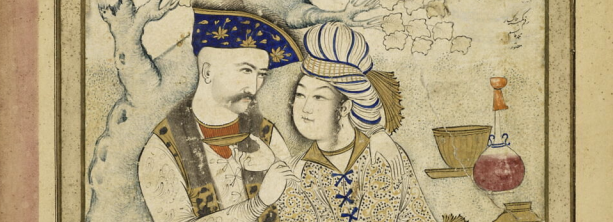We are seeking a highly motivated, inspirational person to join our thriving academic community of historians and bring exciting perspectives to the teaching and study of Byzantine History at Oxford. You will have the opportunity to join one of the foremost global centres for teaching and research on the history of Byzantium, and to develop courses for both undergraduate and graduate students that reflect your own research focus. You will also have the freedom to develop your own research ideas and projects, working with colleagues across the University and beyond.
We are looking for a proven scholar and talented teacher whose research and teaching specialism is in the history of Byzantium from c.500 to c.1500. Within that period, we have no preference for a particular geographical area or sub-disciplinary specialization. Byzantine History in Oxford sits within a wider context of scholars from a number of disciplines who are working on other areas of Near Eastern and Middle Eastern history, as well as the history and culture of central and eastern Europe, the Islamicate world, and the empires of Central and East Asia. We are therefore particularly interested in applications from scholars who can build links between Byzantium and these other fields of research. This is a rewarding as well as a demanding post. You will have research and teaching expertise in Byzantine History, the ability to inspire and enthuse students at all levels, and a commitment to promoting the subject within and beyond academia. You will play a strategic role in developing research and teaching programmes in Byzantine History, and in the long-term development of the Faculty and College.
This post is an exciting and demanding one in which you will conduct advanced research; give lectures, classes, and tutorials; supervise, support and examine students at the undergraduate and graduate levels; and play a part in the academic life of the Oxford Centre for Byzantine Research and the administrative work of the History Faculty and Corpus Christi College.
The appointee will be a member of the Faculty of History and a non-tutorial fellow of Corpus Christi College. The post is tenable from 1 October 2025 or as soon as possible thereafter.
We welcome applications from candidates at all post-doctoral career stages, including at professorial level. We are committed to creating a diverse academic workforce and positively encourage applications from under-represented communities. We particularly encourage applications from women (approximately 40% of Faculty posts are held by female academics), people with disabilities and Black, Asian, and minority ethnic candidates.
The deadline for applications is 12 noon (UK time) on Wednesday 12th March 2025 and should be submitted online through the University e-recruitment system. Details of how to apply can be found in the further particulars.
Interviews are expected to take place late April/early May 2025.
Queries about the post should be addressed to the Chair of the History Faculty Board, Professor Martin Conway (email: martin.conway@history.ox.ac.uk or telephone: +44 (0) 1865 615005) or the Stavros Niarchos Foundation – Bywater & Sotheby Professor of Byzantine & Modern Greek Language & Literature, Prof. Marc Lauxtermann (email: marc.lauxtermann@exeter.ox.ac.uk).
All enquiries will be treated in strict confidence; they will not form part of the selection decision.









